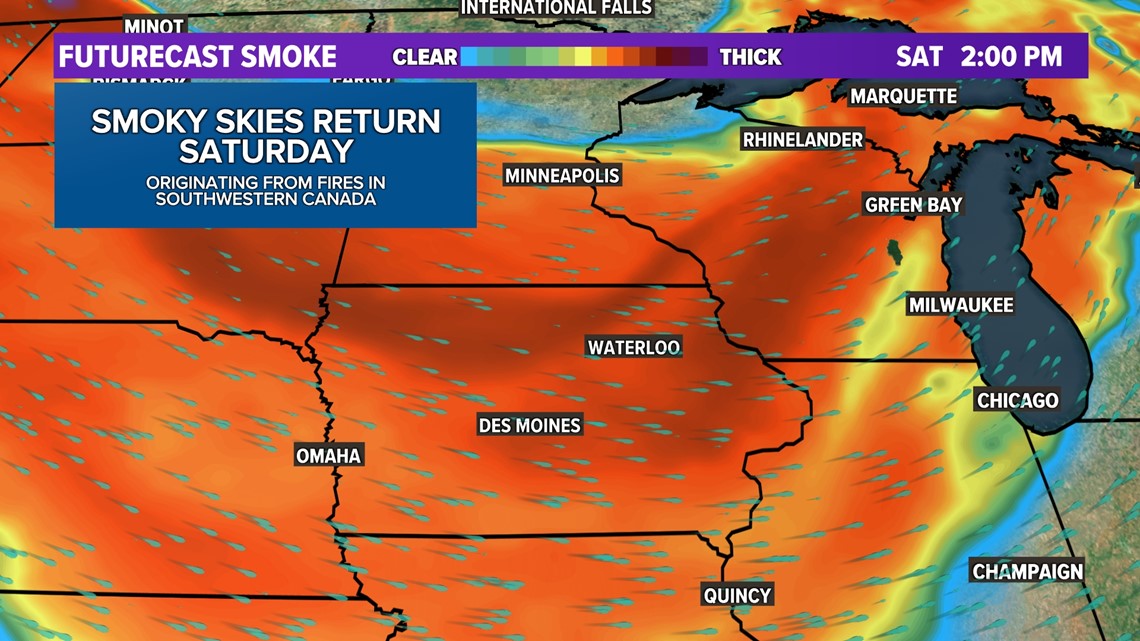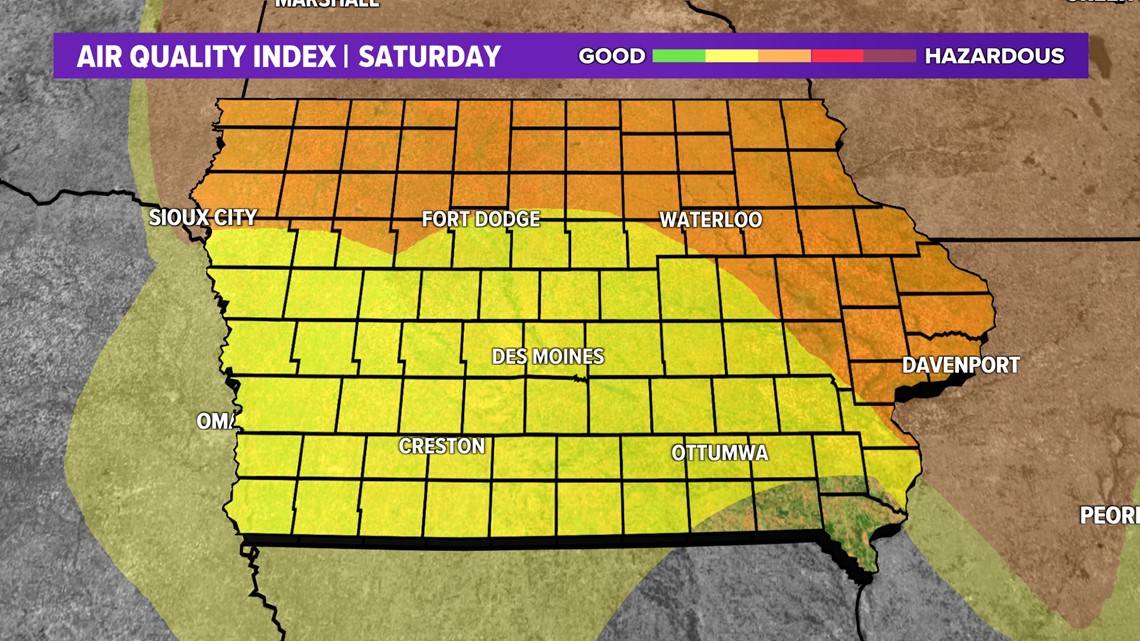DES MOINES, Iowa — After a short hiatus to start July, wildfire smoke from Canada will likely grace Iowa skies again this weekend.
Like we experienced in most of June, smoke normally remains elevated in the atmosphere, leading to filtered sunshine and a milky coloring in the sky.
Sometimes, though, a cold front or other weather feature will push smoke closer to the surface.
As smoke nears the ground, air quality issues usually arise and a faint odor occasionally develops.
Regarding this weekend, smoke will push into Iowa from the north by early Saturday, with the thickest smoke likely arriving on Saturday afternoon.
An incoming cold front is responsible for the change, and wind from the west and northwest may work to push some of the smoke closer to the ground, especially over northern Iowa.
This smoke originates from fires currently burning in Alberta and British Columbia, where air quality is poor.


Data from weather forecast models suggests Iowa may experience a dip in air quality on Saturday and possibly early Sunday.
Many U.S. cities have experienced smoke-filled skies over the last few months, often prompting state or local officials to issue air quality alerts and warnings.


As of Friday, an Air Quality Alert had been issued for all of Minnesota, per an update from the Minnesota Pollution Control Agency.
Until Canadian fires are completely controlled, smoke and air quality issues will periodically affect the Midwest and Northeast throughout the summer.
To keep tabs on local air quality, it's useful to visit airnow.gov for the most up-to-date information.
The website allows users to type in their zip code for current air quality reports, as well as for future air quality forecasts.
As a reminder, those with breathing difficulties, asthma, heart problems, or other underlying conditions, should limit outdoor exposure when air quality reaches a "moderate" or "unhealthy" level.
Important Weather Links:
Download the We Are Iowa app or subscribe to Local 5's "5 Things to Know" email newsletter to get the latest weather forecast

